The Brief and Incredibly Poetic Life of Bañec Hazyblockades: a Dwarf Fortress diary
Pen =/= sword
This is a Dwarf Fortress adventurer mode journal, in which I live (and, perhaps die) by the poem.
The goal is simple: try to survive and thrive in Adventurer mode of Dwarf Fortress by relying mostly on the poetry and language skills. Read on to hear the tragic riddle of Bañec Hazyblockades, poet of the Mortal Society of the Released Union, who sang her own death in the Beaches of Talking, meadhall and seat of Izem Sulthodoto, lord of the hamlet Homageshoots.
The setup
Every couple years, I reinstall the latest version of Dwarf Fortress, and sit down to generate a new world. This time, we’re looking at Ngutegthur, the Cyclopean Dimensions, a realm whose name reminds me of Lovecraft, or even more strongly of Howard, but let’s try to get in there before we nail down the literary antecedents too precisely. With any luck, our focus on poetry will drag us a little of the way towards Clark Ashton Smith.
Before embarking, I spend some time on the character creation screen. I've enjoyed guiding varied and various adventurers before, but for this playthrough I think I'm going to lean human. I understand from some patch notes that it is now possible to lie to people about your identity, something that may come in handy this playthrough, and I suspect I'll have more luck impersonating useful figures during my adventures if I pick human than if I pick White Stork Man (although a past playthrough as a scarred, Fist-of-the-North-Star-style martial artist super-peach-faced-lovebird man has left me with a permanent affinity for birdmen.)
That's half the choice done, then. The other one for this screen is status: Peasant, Hero or Demigod, each of which offers an ascending quantity of skill points to spend. I would usually pick Peasant or Hero, but I'm planning to throw nearly all of my points into a superbly useless skill: Poetry. My plan is to try to support myself through poetry, and to attempt to find and write a poem about an artifact or artifacts.
For the sake of not spending eighteen hours picking up and throwing rocks in order to increase my stats to the point that encountering a single wolf might not be a death sentence, I choose Demigod. Some scion of Apollo or his local procedurally generated counterpart, perhaps, though I suspect I will soon prove all too mortal.
Human Demigod takes me to another screen. Here I can choose between all the different human societies of this world, or choose Outsider if I don't want to be a part of any of them. There are a lot of tempting possibilities: who wouldn't want to spend a lifetime as a demigod poet of the Torrid Lash, the Prime Tomb, the Thunders of Dying or the Abyssal Thorn? Even the more mundane titles are filled with promise: the Green Empires, the Bastion of Colors, the Dreamy Ram. A few make less sense – does anyone know what a Zephyr of Hammers might be? After overdue deliberation, I settle on the Released Union, because it's way up north in goblin country, near that haunted glacier, which I can't seem to resist the lure of, even in adventurer mode.
Next, I assign skill points, so that I have a decent spread of mental stats, especially Creativity and Linguistic Ability. Leftover points went into Agility, Endurance, Recuperation and Disease Resistance in the hopes that whatever perils I encounter do not immediately end me.
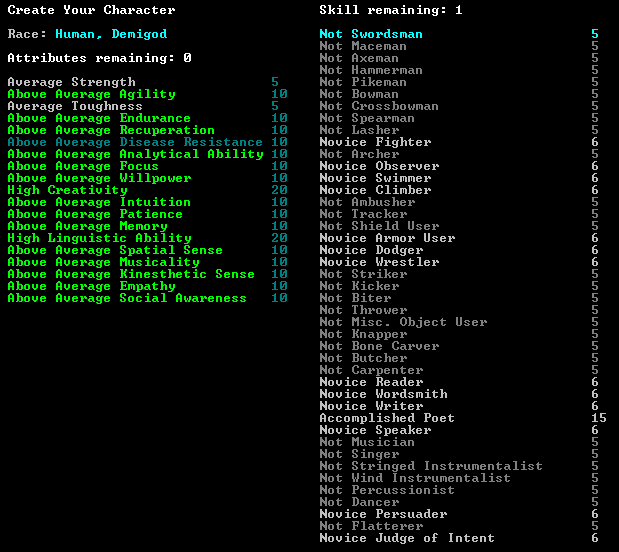
If we spent every skill point we possess, we could reach Grand Master poet. I stop at merely Accomplished, and give us a smattering of other social and survival skills in order to also be a reader, a speaker, a wordsmith and a writer. It seems like being a poet needs a lot of point investment. Finally, I put up Climbing and Swimming to Novice, because I know that learning these skills without possessing them can be difficult.
And then begin.
First steps
I am Bañec Asusothbod (no product placement by any PC manufacturer has been paid for in this article), female human demigod, a newly-minted hearthperson of the great Izem Fluketails in Homageshoots, a human hamlet. Destiny is calling! I am a worshipper of Disem the Mysterious Cloak, the god of mist. My name is even similar in some ways, meaning "Hazyblockade," perhaps reflecting a claim to divine parentage.
I accept the first random identity the game gives me, hit enter, and realize I've made a terrible mistake. As the screen fills with this fictional woman’s values and beliefs, and then her physical description, I realize how badly I do not want her to die. I find myself considering the values she holds, and the blend of what I imagine are typical human norms and typical goblin norms I suspect they might represent. The old Dungeons & Dragons trick of rolling 3d6 in order suddenly becoming a person whose life you value, surfacing suddenly in an unexpected context. I always find that somehow the process of random selection makes things more dear. Loss aversion rears its head, and I begin to wonder if I shouldn't back up, maybe make a white stork man with a goofy name who I can feel better about letting down. But it's too late to go back now. All Dwarf Fortress tales are ultimately tragic, and it’s long past time to truly begin this one.
I'm expecting to spawn in a tavern, but a quick look around the room I find myself in confounds me: it's a rock salt throne room, containing the lord whose hearthperson I am – he greets me by name immediately – along with his court, including a sepia-skinned dwarf poet with a nautilus leather cap, a pikeman, a lasher, and a goblin slave who's reading, or at least standing very near, a book about farming whose title I can barely puzzle out thanks to my Novice Reader status. As I take a single step, more figures filter into view: a "lady consort," more soldiers, and another goblin, this one yet another poet. It seems I've landed in a multicultural literature club of some kind. This, I will later learn, is the Beaches of Talking, lone outpost of civilization in a tiny, crime-ridden hamlet.
I imagine the light of day diffused and softened by rock salt walls, backlighting a crowd of bizarrely costumed individuals. The goblin slave, whose name is Ngoso Xanobåx, says hello to me. I greet him in turn, and he begs me for rescue him, promising immediate violence against the humans in the room if I will assist him. I check my inventory. I am wearing cloth, and carrying a bronze spear. There are at least six armed human guards in the same room as us. I consider ending the playthrough in a brief, likely bathetic flurry of violence, then in a moment of in-and-out-of-character cowardice and moral failing, I turn him down for the moment, promising myself I’ll try to help him later. This promise will, I promise you, come back to haunt me.
In order to cover up my moral failings, I try to make small talk. He tells me about the death of his father, shot and killed by humans somewhere called Witchpitches. I ask him about the ruler here, and if anyone else has a claim to the site we're in. He says he doesn't know about any other claims, but that the purple flashing lord in the corner is in charge around here.
I've fallen into the endless space of the conversation options, which have expanded dramatically since I saw them last. New submenus seem to allow me to state all of the values my precious, flawed, perhaps goblin civilization-influenced character has, and also to lie and say that I have different values. Desperate to find something to do besides continue to talk to the goblin, I pick up the book, to see if I can read it. From across the room I overhear the dwarf poet loudly telling the pikemen that he is a very important person. I figure it's time to face the music, and go to introduce myself to my lord.
His name is Lord Izem Sulthodoto, and he says I'm a pleasure to talk to. Another new menu option lets me ask him to declare me an official performer of the Mortal Society, his personal organization of which I am a hearthperson. I figure maybe performers get a better salary than hearthpeople do, so ask him to make me one straight out. He refuses, on the grounds that I have done nothing to impress him, so it's time to see if poetry is good for anything in this world. I open the speech menu, scroll down to begin a performance, select recite a poem, and – oh, wow.
As a poet, you see, I have spawned knowing a great many poems. The first title that catches my eye is, "And I sang, 'Sever!'" It's the first title. It's also brilliant, though the game tells me the actual poem isn't all that great. I spend a good twenty minutes sorting through them all, trying to decide what to recite.
The worst poem I know is called The Unthinkable Droplet And Chills, and it is "very very bad." As for which the best poem is, that's harder to tell: is great better than masterful or not? How much will subject matter, and writing style, sway the lord's opinion of me? One of these poems exhibits the essence of viciousness in its writing style, while another contains a strong hint of compassion. Every other poem or so is a new poetic form, created by another civilization; some of them are poetic forms made by the other human societies I almost started as, others belong to dwarven or goblin originators.
I recite a lot of poems. Some, like the ones written by our own civilization, go over really well. Others are only a hit with the goblins in the room, who think they're hilarious, including the longest poem I read all night. My lord is embarrassed.
Reactions are mixed. The dwarf poet who's so full of himself is consistently the toughest critic, but eventually I deliver the poem My Friend Drip with such consummate skill that even the dwarf poet admits I have great talent. I decide that's probably as good as it's going to get, and head back to my lord to ask for a job again. This time, he agrees immediately! Poetry is good for something after all. It doesn’t seem like there’s any option to ask for money, though, or any way to enquire about my benefits.
Before consigning myself to die in a hole, I decide to pick up and read the other book in the throne room, which is called "Before the City" and appears to be about the founding of the hamlet we all live in. Instead of just dropping the books I get the bright idea to hand them back to the lord who owns the place. After a little fumbling, I find the right trade sub-menu and hand them over. Delighted, he chortles out loud, "I acquired something! How wonderful!"
This gives me a no-good, terrible, awful, downright wonderful idea. I walk back into the northern treasure alcove, rummage in the bags there for clear valuables: a beautifully crafted bronze shield, a quiver of silver arrows, a leather helmet adorned with feathers. I walk back to the lord, and open the same trade window. This time, though, instead of offering them for free, I ask for currency.
And, like a chump, he immediately pays for his own stuff. I take it back: this isn't a Howardian or a Lovecraftian world, it's a Vancian one. Immediately, I start to feel better about my odds of making it somewhere in this life. I decide to take a look around the town, and step outside.
Maybe it's hard to imagine for you, but when I step out to this sight, my spirits lift even further. I listen to the chickens scratching, for a while, and try to figure out how to pet a stray cat but can't find the button, if it exists. I spend a little time watching hens and roosters scratch amongst the red dust, then head out across town, optimism and a pocket full of coins buoying me up.
I make a quick walkabout, and realize this is a tiny, barely existent hamlet, consisting of farm fields, the lord's hall on a hill to the northeast, and a single cluster of houses. Standing among the peasant huts of the village, I pop open the status screen and notice that I have a need to pray to my god, and though I'm not distracted by it yet, I go ahead and talk to empty air, giving praise to the cloaked one. Immediately, I feel a rapturous sense of focus descend upon me. Surely, this is my destiny! Surely, I will become a great poet!
I notice that there's a grey asterisk near the bridge. Based on half-remembered meetings with friendly travelers in previous versions of the game, often interesting sources of information to flesh out the picture of what's going on in the world, I stop to see who it is. This turns out to be a mistake.
My first clue to stop getting closer is that the man by the bridge is identified not by name, but simply as a "skinny bowman." The second clue is when he starts babbling to himself about a raging battle, despite us being the only two in sight. Looking at him, I see his attitude is flagged as "Lethal," meaning he plans to kill me. I beg him to reconsider. He laughs and shoots an arrow at me, which lodges near my spine. I feel something tear. I tell him I yield, I beg for mercy, and he shoots me again in the leg, damaging my knee. I fall to the ground.
Is this how a life of letters ends in this cruel realm? Is this what I spent so long reading through poetry descriptions for? I consider my options. I'm pretty close to him, so fleeing was a bad plan even before he damaged my leg. I grit my teeth, unstrap my spear from my back, and crawl towards him.
On the face of it, it's an unwinnable fight. As I crawl forward, he shoots me again in the chest, piercing it and bruising my lungs. A "Mortal Wound" indicator appears flashing, next to the one that reads "Bleeding." I attempt to stab him in the bowhand, and miss. I attempt to grabble his bow, and he jumps aside. I attempt to stab him in the lower body, and miss again. I know my death is coming any turn when, suddenly–
"Suddenly what?", I hear you cry. Will Bañec survive? What will become of the skinny bowman? Will Lord Izem ever realise he paid to get his own stuff back? The answers to these questions and more coming in the thrilling conclusion to Bañec's story next week, only on RPS.

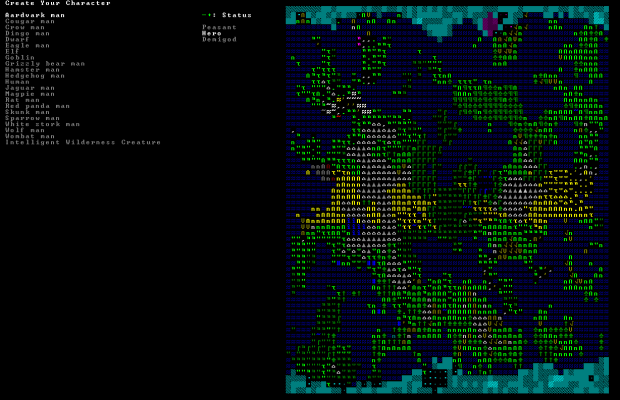
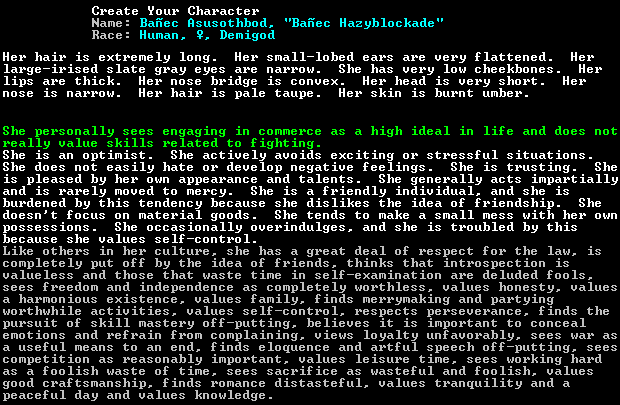
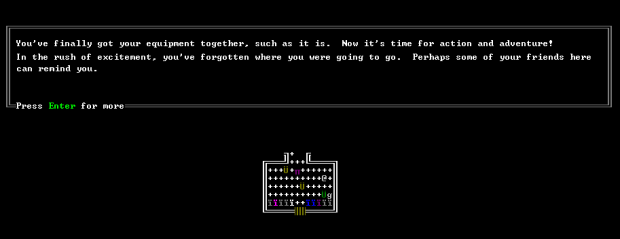
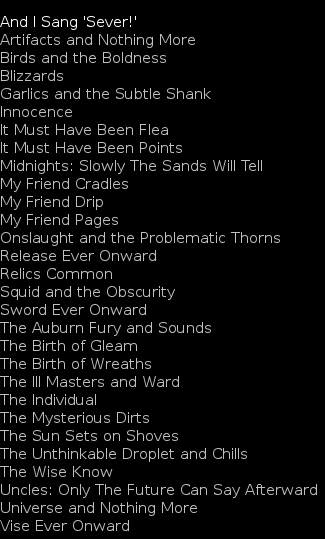






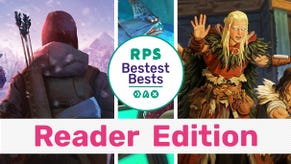
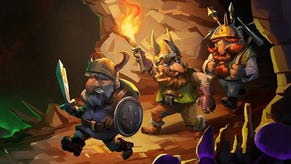
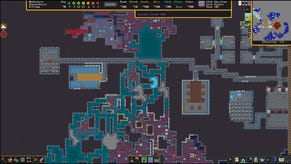
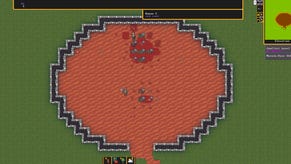
.jpg?width=291&height=164&fit=crop&quality=80&format=jpg&auto=webp)